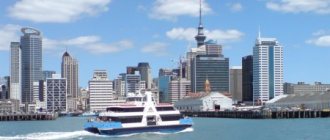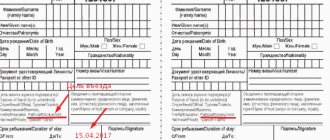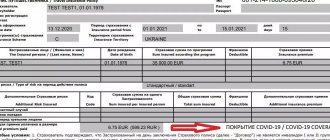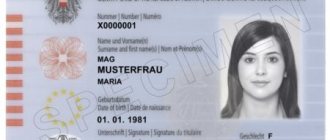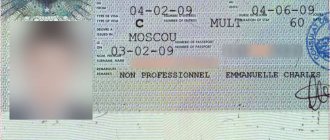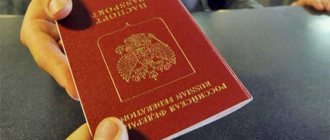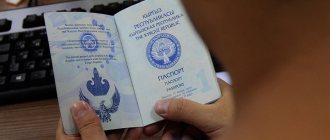Beautiful Switzerland is deservedly proud of its reliable banks, well-established life and the lowest (compared to the rest of Europe) unemployment rate. A happy combination of qualities makes the country of ski resorts and chocolate an attractive place to move for permanent residence.
Citizens of many countries seek to settle here, but the process of obtaining a residence permit (and, in the future, permanent residence) is not burdensome only for citizens of the European Union and member countries of the EFTA trade organization. For others (including Russians), the process is more resource-intensive, and the answer to the question of how to move to Switzerland for permanent residence depends on the choice of grounds for immigration.
Problem 1: Thinking in non-Swiss terms
It seems to us that the main obstacle to migration is not scammers (we will return to them later) or a combination of circumstances, but an attempt to understand the Confederation by the standards of your country. Want examples? Please:
- many are trying to predict the reaction of Swiss officials based on experience with their own officials (from Russia, Ukraine, etc.). Only after many years of living in Switzerland - if emigration is successful - will you understand how wrong many of your judgments were in the initial stages;
- Another special case is being seduced by “free” offers. Remember: in our country no services are free! This thesis is so important that the Switzerland Business Portal will repeat it again: no services here are free! If, for example, an accountant, immigration lawyer or anyone else (see also below) promises you a “free hour” or something else “free”, run! Usually this is either a scammer (or a fraudster - there may be even more women in this business than men), or they want to earn two (three, etc.) times more from you.
Based on the above: always keep in mind that in Switzerland things may happen differently than in your country.
Professional immigration
It is considered a really difficult way. The Swiss government is actively recruiting local personnel, so it is difficult for a foreigner to obtain a work visa. Foreign citizens are invited when the company has proven that a specialist of a suitable level cannot be found among local residents.
It is better for representatives of rare professions to immigrate to Switzerland on a work visa. We advise you to soberly assess your own level: companies rarely hire juniors, giving preference to professionals. HR managers of companies review first the resumes of residents of the country, then citizens of the European Union, then the rest. Before applying for a work visa, you must obtain an official offer from a company legally registered in Switzerland.
Problem 2: Reviews and advice on the Internet
Having familiarized yourself with the first problem, you might have a reasonable question: how should you think then? How to get to know these Swiss realities? We are forced to immediately inform you of another problem: reviews and advice on the Internet will not help!
Russian-speaking groups on social networks (Facebook, Vkontakte, etc.) are full of people from Russia, Ukraine, Belarus, etc. In such groups, each and every first person, by virtue of the fact that he or she has ever received a permit, imagines himself as a first-class migration expert . Good luck to you if you trust the advice of any Russian-speaking Swiss wife, who - instead of working - generously gives instructions on how and what you need to do. We hope that for some such “valuable advice” you and her (as an instigator) will not be prosecuted (yes, there are such “advices”!).
Moving to Switzerland for permanent residence
The terms of provision are as follows:
- residence for at least ten years within the borders of the state using temporary documents (the last five - without leaving);
- having a work experience of 10 years or more (the time required to obtain education is doubled);
- no complaints about the inability to adapt to local rules and lifestyle.
In addition, permanent residence in Switzerland for Russians is issued to persons who have not been found to have violated national legislation.
Required documents
The application is also submitted to SEM. The application must be accompanied by documents confirming that the applicant meets the above requirements. Namely:
- certificate of obtaining a residence permit for ten or more years;
- employment information;
- papers evidencing education in the country and other documentation.
A hint for those who want to know how to move to live in Switzerland: you need to think about obtaining a rare specialty, mastering a profession in whose representatives the authorities of the confederation are interested.
Terms and procedure for obtaining permanent residence
After submitting the application to the secretariat, department officials conduct a thorough check of all information (at least a month). Taking into account interviews and examinations, the period may be extended. The time it takes to study the documentation directly depends on:
- stated justifications;
- cantonal legislation.
Advice: an applicant for permanent residence must immediately declare his desire to eventually obtain citizenship of the Swiss Confederation. This will simplify the procedure in the future.
Read also: Average salary in Switzerland Studying in Switzerland
Problem 3: Emigration without any help
There are only 2 ways to get the information that is so necessary in your case:
- collecting information literally bit by bit (for example, on the official Swiss government website; on the Switzerland Business Portal you will also find a lot of useful materials). This method is free, but it takes a long time and does not provide any guarantees;
- turning to a Swiss migration lawyer for help is a quick way, but requires investment.
Which method to choose is entirely up to you. If the choice falls on the first one, you can immediately move on to problem 6.
Ways to immigrate to Switzerland
Be guided by your goals when choosing a method of immigration. Are you planning to get a prestigious education? Do you dream of opening your own European business? Maybe your loved one lives here? Focus on your goal when choosing your role for immigration:
- university bachelor/master student;
- professional working for a Swiss company;
- investor;
- spouse;
- reuniting with family;
- refugee.
Let's take a closer look at the advantages and disadvantages of immigration methods. Together we will decide which one is ideal for you.
Problem 4: Emigration to Switzerland with foreign intermediaries/scammers
If you decide to seek help with migration law, then you should contact someone who knows it. By definition, these are not “relocators” or “business experts.” It only makes sense to contact a Swiss lawyer . However - again - the question arises: how to find the real one?
The Alpine Republic is an extremely attractive country for emigration. However, all sorts of intermediaries are trying to make money from those who want to become residents of our country - even if they have never set foot on Swiss soil and, accordingly, do not have the slightest idea about the life, mentality and migration law of Switzerland. The Internet is full of scammers from Russia, Ukraine, Cyprus, Lithuania, etc.!
Intermediaries located outside of Switzerland are capable of only one thing - to take your money and not provide you with a single useful service! Judge for yourself:
- intermediaries located outside of Switzerland do not have the slightest idea about our country, its legal system and characteristics; why would you pay someone who only knows Switzerland based on what he or she read on Wikipedia?!
- The decision to issue a residence permit is made by the cantonal authority. Swiss authorities are prohibited from having direct contact with companies and persons located outside our country that do not have a branch here; Accordingly, intermediaries located in Moscow, Kiev, Almaty, Baku, St. Petersburg will not help .
- foreign intermediaries either do not speak at all, or speak our languages at an insufficient level.
How to recognize intermediaries/fraudsters?
Availability of UID registration number
The main proof of the existence of a company in Switzerland is its UID registration number in the following format: CHE-XXX.XXX.XXX . You can find this number on the company’s website (for example, in the section about specialists or usually at the very bottom of the site) and then check it yourself on the government website.
If someone does not have a UID number, then with a high degree of probability we are talking about either a foreign intermediary or a fraudster.
Website on .ch
The website of the company or specialist must be in the .ch domain . Many foreign intermediaries use websites in the .ru or .com zones. The Swiss Business Portal also regularly detects scammers in the .ru or .com domains.
Swiss IBAN
An extremely important detail: a bank account for payments for services must be opened in one of the Swiss banks. In this case, the IBAN has the following format CH XX XXXX XXXX XXXX XXXX X.
If you apply for services in Switzerland, the company must provide you with an account number for transfer specifically to Switzerland. A serious reason to be wary is if a supposedly Swiss company asks you to make a money transfer, for example, to:
- Bulgaria (IBAN number: BG XX XXXX XXXX XXXX XXXX X);
- Cyprus (IBAN number: CY XX XXXX XXXX XXXX XXXX X) or
- Latvia (IBAN number: LV XX XXXX XXXX XXXX XXXX X).
Very often, bank accounts opened in these jurisdictions are used by fraudsters.
Reasons for immigration
Immigration to Switzerland from Russia, the purpose of which is naturalization, is a multi-stage process. To apply for a residence permit, you must have compelling reasons, and they do not differ from those accepted in EU/EFTA countries; At the same time, there is a selective approach to residence permit applicants: more loyal to EU/EFTA citizens, more demanding to others.
Employment
Every year, each canton allocates a quota to attract labor from abroad. The priority of the local labor market is applicants from EU countries; the rest of the workforce is considered on a residual basis (in 2021, the quota was 3,500 residence permits of category B for third-country citizens).
A work visa is issued to two categories of labor migrants:
- Seasonal workers. They receive a type A visa without the right to a residence permit in Switzerland, but with the possibility of changing their status and the chance to gain a foothold in the country.
- Highly qualified specialists. They are invited to fill narrow-profile vacancies for which there were no applicants from the “first list”. The employer sends an official invitation; then a contract is concluded and a work permit is issued (for 2 years). For the same period, a B visa is issued with the possibility of extension, which also applies to the specialist’s family. Residence in the country with 10 years of work experience gives the right to obtain a C visa, and subsequently obtain citizenship.
Doing Business
Switzerland is friendly to people who want to invest in the local economy. You should know that purchasing an existing business or starting your own business does not give you the right to a residence permit, but the ban can be legally circumvented. To qualify for a residence permit, it is enough to become the manager of your own company and employ local residents.
Permission to open a business in Switzerland is issued by the cantonal authorities; They determine the feasibility of the enterprise. The requirements apply not only to jobs - you will have to maintain documentation and pay taxes; Some activities are not available (or limited).
Category B visa is issued not only to investors, but also to wealthy foreigners wishing to settle in Switzerland. For them, a type of visa B is provided - the Fiscal Deal tax agreement program with the following features:
- The starting capital amount is 850 thousand euros.
- Preferential taxation at a fixed rate.
- The need to stay in the country for 6 months annually.
- A tax resident has no right to conduct business or work, only spend money.
Purchase of real estate
Buying a house in Switzerland only allows you to obtain a long-term Schengen visa, unlike the European Union, where the purchase of real estate entails automatic receipt of permanent residence. Owning real estate, a foreigner:
- Receives a Schengen visa with the right to multiple entries into Switzerland. The condition is to stay in the country for at least 3 months every six months.
- Restrictions are imposed on the cost of living space. The lower limit is in the range of 400-700 thousand euros (equivalent).
- The owner of the property has the basis for obtaining a residence permit of category B, and in the future can apply for category C.
- After receiving category B, a foreigner is allowed to purchase real estate up to 3 thousand square meters, and will require permission from the local municipality.
- After receiving a C visa, space restrictions are lifted, but permission from the authorities is still required.
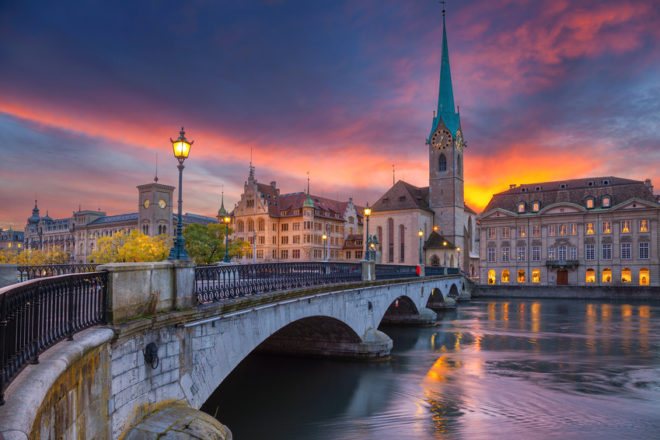
Through education
Education in Switzerland is recognized as one of the highest quality in the world; seven universities rank among the top 100 educational institutions in the world. The diploma obtained here is accepted without nostrification (recognition) throughout the world.
After admission, payment for the course, rent and housing, the student is issued a B visa with the following conditions:
- The visa is issued for a year with subsequent extension and is intended for undergraduate students (3 years). A student planning to continue his studies in a master's program (and further, in doctoral studies) has the right to obtain permanent residence in Switzerland, but only if the period of residence permit is observed.
- A student visa does not give the right to work in Switzerland. Anyone who intends to stay to work in the country needs to negotiate with the employer, leave, apply for a work visa and re-enter the country.
- Expulsion from the university for any reason will cancel the residence permit.
Family reunion and marriage
Moving to Switzerland from Russia is possible if there is a blood connection with citizens or persons with a residence permit/permanent residence permit. In case of family reunification or marriage with residents of the country, obtaining a residence permit and permanent residence permit follows a preferential, accelerated procedure.
Visa support is provided to the foreign spouse. The requirements include registering the marriage in Switzerland and verifying the seriousness of the relationship by the authorities. After the ceremony, the spouse receives a residence permit (B visa), which after 5 years (and many checks for fictitiousness) is replaced by a C visa.
Residence permit is also provided:
- For minor children.
- Parents over 60 years old.
- Single relatives in need of care.
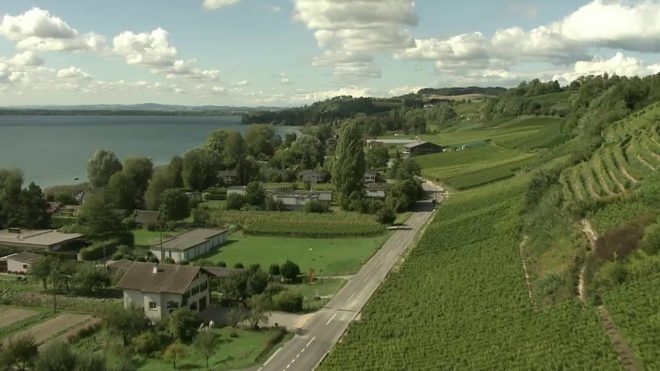
Political refuge
Obtaining refugee status in Switzerland has minimal chances of success. Although the country participates in various international organizations and funds for the protection of refugees, the European migration crisis has led to stricter admission rules. In addition, it should be taken into account that the country is not part of the EU, and therefore European rules do not apply to it.
The reception of political refugees has not been stopped completely, but is accompanied by strict selection. The procedure begins if the foreigner can prove political persecution in his home country; evidence is best provided documented. Refugee status is granted for 5 years; Those wishing to obtain Swiss permanent residence will have to wait 10 years.
Problem 9: Emigrating to Switzerland without pre-calculating taxes
This problem mainly concerns those who have their own business. When you become a Swiss tax resident, you begin to pay taxes here. This truism means that even before emigration, your Swiss migration lawyer will have to calculate the approximate tax burden in your new place of residence. Let us remind you: due to federalism, income tax in the same situation, but in different cantons, can be up to 4 times more/less. For example, taxes in the French-speaking part of Switzerland (called Romandie) are usually higher than in the German-speaking part.

Migration news
About Swiss taxes
Documents for visa C
Documents can be submitted through the Swiss Embassy in Moscow, visa centers or sent by mail through specialized DHL offices. Reception takes place by prior appointment. If we are talking about Schengen, then instead of the applicant, the package of papers can be handed over by his relative, representative or accredited travel agency. The applicant submits documents for a D visa in person to the Embassy - without any exceptions.
Residents of Kaliningrad and the region can apply for a visa to the Swiss Embassy in Latvia (Riga).
Document package for visa C to Switzerland:
- Application form filled out in Russian, German, English or French and signed by the applicant.
- A passport valid for at least 90 days after returning from a trip to Switzerland with at least two blank pages.
- Two photographs 35x45 mm with standard Schengen requirements. One photo must be pasted on the application form, the second must be submitted separately.
- A copy of all completed pages of the internal passport of a citizen of the Russian Federation.
- Medical insurance with coverage starting from 30,000 euros, valid for the entire period of stay in the country, as well as in other Schengen countries.
- Tickets or confirmation of their reservation, as well as a travel voucher for the duration of your stay in the country.
- Documents confirming financial solvency - from 100 Swiss francs (about 8,660 rubles) on the day of the visit.
The latter may be an official certificate from work about earnings covering travel expenses or a bank account statement. Confirmation from the sponsor will also come in handy if, for example, you are flying to visit.
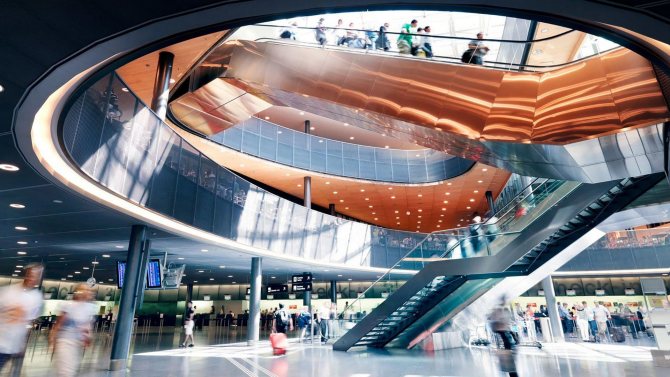
Zurich Airport. In addition, you can now fly from Moscow to Geneva. Image from freepik.com
In case of a guest visit, you must additionally attach an invitation from the Swiss side with a copy of the inviting person’s passport. For training - a certificate of enrollment in courses, for participation in cultural and sports events - confirmation of participation from the organizer, and in the case of a business trip - a request from an organization in Switzerland. If you plan to find employment and work in the country, then in addition to contract documents you will also need permission from the local cantonal authorities.
Be sure to take the entire package of documents with you on your trip, since the likelihood of them being checked upon arrival in the country is very high.
Processing times and cost of a visa to Switzerland
The Embassy usually takes 3 days , after which a decision is made. When submitting papers through a visa center or post offices, you must also take into account the delivery time. Then the processing time may take up to 7 days. In exceptional cases, if the package is suspicious and the verification requires the involvement of Swiss law enforcement officers, the review can last up to 90 days.
The cost of a visa is fixed and amounts to 35 euros for citizens of Russia, Ukraine, Georgia and Moldova. Children under 6 years of age and citizens of Ukraine under 18 years of age can receive it for free.
Officially, the Swiss Embassy does not provide an urgent visa service. But in emergency cases (threat to life and health), you need to fill out a special form and submit a request for an expedited review procedure to the email address .
You can track the readiness of your visa in your personal account on the official website of the Embassy. Also, information about the final decision is sent by e-mail and in the form of a text message to the phone.
Life in modern Switzerland
The Swiss Confederation is in many ways different from the rest of Europe. Not only did the Swiss refuse to join the European Union in a referendum, they also strive to close the Alpine republic, significantly limiting immigration traffic, especially from third countries outside the European Union.
Today, Swiss banks hold a quarter of the world's financial reserves. In many ways, colossal banking capital became the guarantee of Switzerland's inviolability even during the Second World War. For centuries, the Swiss Confederation has adhered to a policy of neutrality, not only trying not to take part in armed conflicts, but also pursuing a very moderate foreign policy.
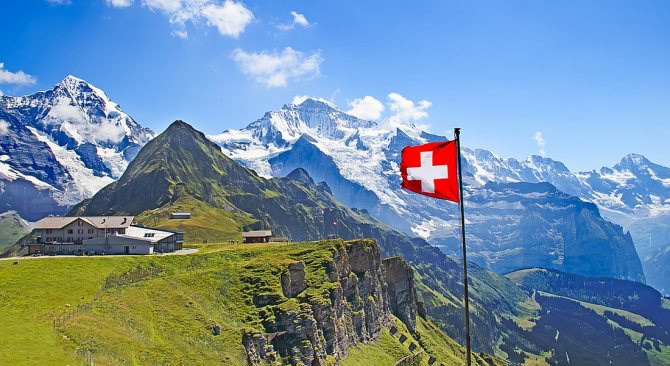
Switzerland is often called the Alpine Republic
To characterize life in modern Switzerland, we will give a few figures. The population of this small alpine country is slightly over 8.5 million people. But at the same time, each Swiss person accounts for almost 81 thousand dollars of gross domestic product. And this indicator allows the Confederation to occupy fifth place in the world in terms of GDP per capita. But according to the Human Development Index, the Swiss are in second place. The level of wages in this country is very high and significantly exceeds the European average. At the legislative level, a minimum wage is not established in Switzerland, but relations between employers and employees are regulated by collective industry agreements. They set the minimum wage and other working conditions. Most of these documents indicate a minimum wage of 2900 to 5400 Swiss francs for representatives of intellectual work. Workers without the proper qualification level can expect to pay CHF 2,200–4,300 per month. The level of education and specialized experience has a significant impact on wages. There is no territorial differentiation.
The Swiss currency is the franc. Its exchange rate against the euro: 1 Swiss franc (CHF) is equal to 0.88 euros (EUR). As of September 2021, this is about 70 rubles. Switzerland has had virtually zero inflation for decades.
In Switzerland, salaries are paid not 12, but 13 times a year. Salaried employees can expect to receive their 13th salary before the Christmas holidays. Some companies provide for the payment of even the 14th salary.
The average monthly salary in the country in the first half of 2021 was 6,503 francs. A local feature is also that women earn 12% less than men. In 2021, Switzerland has nearly 5 million working people. This dispels the myth that native Swiss people simply sit at home and receive dividends from bank deposits.

Swiss currency - franc
The Swiss tax system, recognized as one of the most advanced in the world, is still very complex. There are federal, cantonal and municipal tax systems. When taxing, marital status and the presence of minor children are taken into account. For example, in Zurich the maximum income tax rate is 12% for income of 255 thousand francs per year. In Geneva this rate is already 15%. There is also differentiation of taxation for different sources of income.
In 2021, just over 30 thousand Russian speakers lived in Switzerland. There is no Russian community there, since ethnic Russians make up no more than half a percent of the population. The vast majority of them live in the Swiss capital Bern, as well as in the major cities of Zurich and Lausanne.
Most Russian immigrants ended up in Switzerland on the basis of employment, marriage with Swiss citizens, and also through a family reunification program. Students from wealthy Russian and Ukrainian families make up about 10% of Russian-speaking immigration to Switzerland.
In 2021, interest in moving to Switzerland is traditionally high. It has especially increased against the backdrop of the economic crisis in the CIS countries.
Advantages and disadvantages of moving to Switzerland
Russian immigrants speak enthusiastically about life in the Swiss Confederation . The highest standard of living is complemented by the friendliness and tranquility of the native Swiss, a stable political and legal system, and developed democratic institutions.
An immigrant will note a number of other advantages:
- a Swiss residence permit gives the right to visa-free travel within the territory of the European Union;
- a resident of Switzerland has the right to purchase real estate on its territory and in the EU;
- the country is famous for the highest level of culture and amazing history;
- Swiss nature is unique in its beauty;
- The Swiss are partial to sports and a healthy lifestyle, so you will have to adapt to them and say goodbye to many bad habits;
- the crime rate in the Confederation is recognized as the lowest in Europe;
- The salary level is the highest in Europe, there are prospects for career growth. Information in the resume that the applicant has previously worked in Switzerland opens the doors of the world's most famous companies to him;
- Resident status gives the right to move relatives;
- Switzerland is the most environmentally friendly country in the world.
It seems surprising that in 2021, experts put Switzerland in first place in terms of environmental cleanliness among the countries of the world. After all, it is located surrounded by European industrial giants: Germany, France, Italy and Austria. When compiling the rating, 140 countries were assessed. Water quality, air purity, natural food, pesticide use and biodiversity were taken into account.
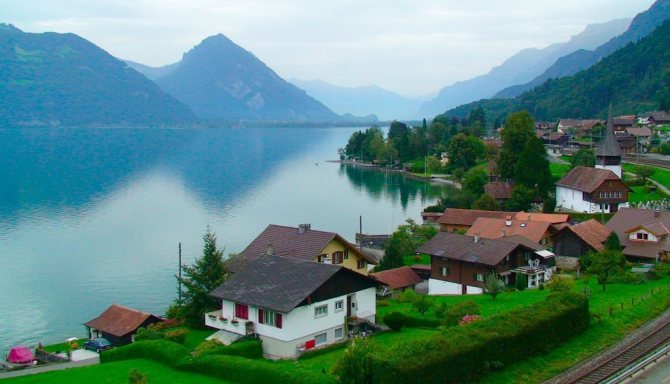
Switzerland is recognized as the most environmentally friendly country in the world in 2021
The disadvantages of immigrating to Switzerland are few, but for some they can be quite serious:
- high cost of living. In Switzerland, prices for food, rental housing, and public transport are significantly higher than the European average;
- the slowness and isolation of the Swiss. It is difficult to make friends with them and establish close relationships;
- high requirements for labor migrants - annual quotas for the employment of foreigners, the need for nostrification of diplomas issued in the CIS or USSR;
- the difficulty of obtaining a residence permit, permanent residence, especially citizenship.

